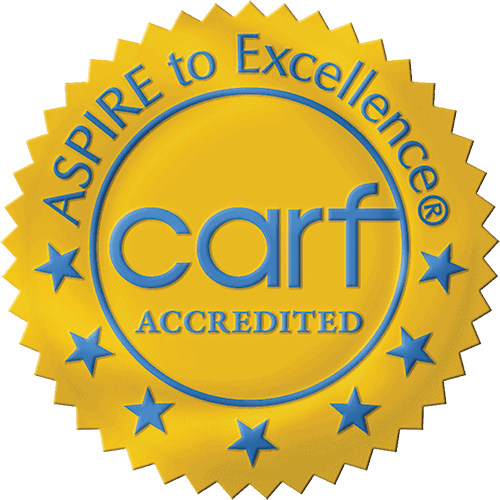Opiate Drug Rehabilitation in San Diego, CA

We Can Help You Overcome Opiate Addiction at Our Caring Facility
Have you found yourself addicted to opioids? Heroin, fentanyl, and prescription painkillers are being abused more than ever. They create euphoria but are highly addictive and cause painful withdrawals dependency. An opioid addiction treatment program is the answer.Quitting on Your Own Doesn’t Work for Most People
Oxycodone, hydrocodone, fentanyl, morphine, codeine, and heroin have a strong addiction potential. These products rewire your brain’s pathways. Many opioid addicted individuals think that that they're in control of their intake, but they aren’t. When you stop using the drugs, crushing depression quickly sets in. Pain signals travel through your nervous system and reach the brain. Dopamine production now depends on the presence of the drugs. Ending the addiction with clinical treatment, like at our 'family-owned' opioid rehab in San Diego, is the only way out of the vicious cycle.Our Opioid Addiction Treatment Program is Based on the Disease Model of Dependency
You’re not in control of your addiction because it’s a disease. Symptoms are both physical and psychological. To deal with both, you undergo substance use disorder treatment. Our Medical Director, Dr. Hirst, is board-certified in Family Medicine and Psychiatry, and is able to provide a unique level of care that encompasses the 'whole patient' as a result of this dual training and expertise. At our comfortable 'home-like' rehab facility in San Diego, the top addiction experts in the field will work with you to customize a treatment approach. What works for one person doesn’t necessarily work for someone else. That’s why building a curriculum specifically for you is best. Possible therapeutic strategies include:Get Opioid Addiction Treatment in San Diego
So what should someone with an opioid use disorder (OUD) look for in a center that treats opioid addiction? Consider the following components of our excellent opioid addiction treatment center in San Diego:- Treatment options– A high-quality treatment center should provide a wide range of addiction treatment programs for clients. A full continuum of care is crucial for long-lasting recovery, so choose a center where treatment can include detox, aftercare, and every step in-between.
- Location– Treatment tends to be more effective when it takes place away from a large city. Remaining close to triggers like certain groups of friends and locations can also hinder the success of treatment. Choose a facility in a more secluded, calm area.
- Accreditation– Safe and efficient treatment centers tend to receive accreditation from reputable organizations who make it their goal to hold facilities accountable. Accreditation from CARF shows the dedication of the facility to provide treatment that is encouraging, safe, and effective.
- Behavioral therapy that lets you make changes to the ways you react to stressors and triggers.
- Dual diagnosis assessment and treatment when you’re also dealing with a co-occurring mental health disorder.
- Family counseling, which brings you and your loved ones closer together and builds a support network.
- Holistic treatment, which assists with helping your spirit to heal as well.
- Nutritional therapy and guidance that focuses on regaining your physical health while overcoming substance use.
More about Opioids
‘Opioid’ and ‘opiate’ are interchangeable terms when it comes to addiction. Both terms refer to a class of drugs that cause euphoria and reduce physical and emotional pain. Fentanyl is the most commonly abused opioid and is the cause for the overwhelming surge in overdoses in the United States. Opiates are derived from the poppy plant, which is the same plant that was used to create heroin and morphine. Opioids are a newer type of prescription drug, meant to mimic the affects of opiates but made from synthetic materials. Both types of drugs are highly addictive and have reached epidemic proportions since the 1990’s. Many people who've become addicted to opioids say they first were introduced to them through a legitimate prescription from a physician. Opioids and opiates are both prescribed for acute and long-term pain. For example, you may suffer a nasty broken bone and be given pain pills initially as you begin healing. Or, you may suffer from a serious illness that requires ongoing pain management. Most people take prescription drugs for health problems or an illness at some point in life. When somebody takes opioids and begins abusing them (i.e. outside of the directions given by their physician) then they may have develop a substance abuse disorder (SUD), or more specifically, an opiate use disorder (OUD). Opiates and opioids are highly addictive drugs. They often come under different brand names and drug names. Here are a few of the names you might hear:- Fentanyl
- Oxycontin, Percocet (generic version: oxycodone)
- Vicodin, Hycodan (generic version: hydrocodone)
- Duragesic (generic version: fentanyl)
- Codeine
- MS Contin (generic version: morphine)
- Dilaudid (generic version: hydromorphone)
Why Are Opiates/Opioids so Widely Abused?
When a person first abuses opioids, they’re usually just experimenting with the drug. You don’t become addicted to a drug overnight, but some people are especially predisposed to addiction. Some of the people who abuse opioids obtained their drug outside of the medical industry, from a friend or on the street. These people are abusing a drug because they don’t have a medical need for it. A person who abuses opioids like this is highly susceptible to addiction and more likely to try even more dangerous opiates, such as heroin. Other people who abuse prescription opioids may notice they like the effects of the drug, such as euphoria, but that the effects have reached a plateau. They then need to take more of the same drug to get the same effect. This is when their body starts to become dependent on the drug, which leads to addiction.What are Symptoms of Opiate/Opioid Abuse?
People who are addicted to opiates or opioids didn’t become that way overnight. Science shows that some people are more susceptible to a substance abuse disorder than others, but there typically isn’t any way to predict who will become addicted, and who won’t. A person who has become addicted or begun abusing opioids will act differently than they used to as the drugs take over more of their time and lives. They may stop spending time with people they once did, or give up some of their passions and hobbies. A person who is addicted to drugs tends to isolate themselves from non-drug users, and spend more time in pursuit of their drug than other activities they once loved. Addiction can destroy lives. People who are addicted to a substance will often lose control of their finances, alienate loved ones, and have trouble with the law. They may manipulate, cheat or steal to get the money they need for their “fix”. Often, as they spiral into addiction, they lose jobs and possessions as well as relationships that were once important to them.When Addiction to Opiates has Set In
A person who has a substance use disorder or opioid use disorder will often exhibit classic drug-seeking behavior. This means that they will spend more of their time trying to seek the drug, despite negative consequences. Much of the behavior that is considered drug-seeking involved manipulation or dishonesty. An addicted person may repeatedly come up with reasons they need to borrow money, and never bother to pay it back. If they are addicted to prescription opioids, they may try to doctor shop so they can get multiple prescriptions at one time. They may hoard pills and cut them in half in order to save more for later. A person with a substance use disorder may skip important events (even work!) so that they can get the opportunity to get high, instead. Their behavior may not make sense to others, but for them, getting high is the ultimate goal and it’s hard to think about anything else when they’re experiencing withdrawal. In fact, many addicted people try multiple times to stop using so they can get their lives back in order, but find that the withdrawal symptoms are too strong and painful to bear on their own. Addiction can change a person’s thought processes and make it harder for them to resume normal activities. Seeking and using their drug of choice ends up being the most important thing in their life, regardless of who it hurts or other consequences.How Can You Tell if Somebody is High on Opiates/Opioids?
When a person is on an opioid such as Morphine or oxycodone, they may seem sleepy. The drug can make users feel euphoric and act like they’ve been sedated. They may “nod out” while they’re talking or doing another take, coming in and out of consciousness. They may feel abnormally relaxed or carefree, and even may seem dizzy or nauseous. A person who uses opioids/opiates regularly may develop muscle weakness when they can’t have the drug. As people develop a tolerance their drug of choice, they will start using more of it to feel “normal” – and experience shakes, chills, sweats or ever when they can’t get ahold of it.Opioid/Opiate Addiction, Detox and Recovery in San Diego
If you or somebody you love has a problem with opioids/opiates like fentanyl, there is help available. No one has to suffer with a substance abuse disorder on his or her own. Addiction can be cunning and powerful, but once you have detoxed in a safe, clinical environment among your peers, you’ll find there is hope in recovery, no matter who you are or where you come from. The first step toward getting clean is finding a safe detox. If you are addicted to opioids, opiates or heroin, you may need to participate both in detox and medically assisted treatment, which has proven to be safe and effective for thousands of people in recovery across the globe. If you suffer from anxiety, or depression, you’re also not alone. Many people step through our doors and find that they’ve been struggling with a mental health disorder for years. We want you to start healing! Everyone who walks through our doors is assessed and screened for concurrent disorders so that we can help you fully understand yourself, your thought patterns, and your triggers. Your time in treatment will help you learn how to cope and thrive despite your challenges. Recovery is a journey, not a destination! We want to help you take your first steps and find a safe, therapeutic environment to get clean and sober. Our line is staffed by caring intake coordinators and we are available to assist.Medication-Assisted Treatment for Opioid Use Disorder
Our clinical staff will use whatever tools are available to assist our client's recovery and this includes the prescribing and dispensation of drugs to help adjust craving like Suboxone, Sublocade, and Subutex (all brand names for buprenorphine). Our medical director will continue existing prescriptions and (where approprate) write a prescription for MAT medications like these. Then, our clinical staff can manage the dispensation of the medication at the assigned times. It's very helpful to have all clinical parts of the recovery support team in communication with each other like they are at Present Moments. Dr. Milgram will be in charge of both the prescribing of the medications, monitoring your progress, and managing your personalized treatment regimen. This way, the treatment is holistic and truly supportive in nature. Medication-assisted treatment (MAT) for opioid addiction combines medication with behavioral health services. It has been shown to not only save lives but also increase recovery rates. Present Moments Recovery maintains the availability of MAT medications (when appropariate) throughout the entire continuum of care we offer. MAT significantly reduces the risk of relapse and opioid overdose deaths. In fact, the risk of relapse for someone with an opioid use disorder after detox only is 70%; heroin is 91%. MAT drastically reduces that risk. Medication-assisted treatment reduces cravings, anxiety, withdrawal symptoms, and post-acute withdrawal syndrome, which can cause severe withdrawal symptoms to recur up to a year after treatment, interfering with an individual’s ability to continue or engage in other therapies. Managing these physical issues allows the individual to focus their attention on their psychological, emotional, and spiritual needs through therapy, group meetings, and recovery support groups. At Present Moments, MAT is used in combination with interdisciplinary interventions, including evidence-based therapies like dialectical behavioral therapy (DBT) and cognitive behavioral therapy (CBT). We also assess each patient for mental health issues so that we can address them, as well as other healthcare needs that may come up in the assessment process, such as chronic pain.Studies show that MAT, when coupled with counseling, greatly increases one's ability to attain long term sobriety.
San Diego's Premiere Comprehensive Continuum of Care Model
Addiction is progressive and destructive to the person who is caught in its grasp. But recovery is attainable for those who come to a reputable treatment center and get the help they need to recover.‘Home-Like’ Setting and Incredible Value
After making sure that detox takes care of withdrawals and physiological symptoms, we offer residential treatment for the first 1-3 months of sobriety in a comfortable ‘home-like’ setting where individualized attention can place a person’s needs in early recovery at the forefront. Welcome to recovery in an ambience of family and home. We specialize in helping recovering men and women establish a firm foundation in recovery, so after facilitating the detox process all the way through residential (or inpatient) rehabilitation, we assist them in planning for a ‘step down’ program to receive “after care.” If our client is going to remain in the local San Diego area, we will typically continue counseling the individual on an outpatient basis as he or she moves into a local sober living house (or returns home).Longer Treatment Period = Greater Long-Term Success
Our family run treatment center is able to provide a much longer treatment period for the same cost that most rehabs offer a 28 day program. The standard length of time for our continuum of care is 90 days, which creates a very solid foundation of sobriety and newly learned behaviors in the men and women whom we treat. There are countless medical studies which have clearly demonstrated a correlation between longer treatment periods and better outcomes (ie long-term sobriety). This is one of the reasons that Present Moments has been so successful in helping women and men get “over the hump” of initial sobriety and truly establish a rewarding and uplifting life without the use of their drug of choice.
Skilled and Caring Clinicians Dedicated to Your Recovery
The treatment process through our entire continuum of care is facilitated by caring and highly skilled addiction clinicians who have achieved credentials and certifications that are indicative of the best in our industry. Many of our team members have had their own lives touched by addiction, and there comes with this a personal investment in your success because, simply put, our recovery is best supported by helping you with yours. You will not find a more dedicated and effective team of clinicians at any other center.Comprehensive Clinical Treatment in a Comfortable and Serene Environment
We Provide a Continuum of Care for Long-Term Sobriety
Our experience in helping men and women overcome addiction for the long-term has led us to create a multi-level continuum of care. The benefits of extending treatment through several months and gradually making the treatment less intensive have been well established. We provide these levels of care in order to facilitate long-term recovery and integration back into a career. The treatment process typically starts with a safe & comfortable medically supervised detox, and then transitions into our residential treatment environment for full-time treatment over a period of 1-3 months. Our residential home provides all residents with a nurturing, family atmosphere in a calm environment. Here are some more facets of the treatment program at our San Diego residential rehab program:
Examples of Treatment Activities
Here are some more facets of the treatment program at our San Diego residential rehab program:
Examples of Treatment Activities
- Cognitive Behavioral Therapy (CBT)
- Eye Movement Desensitization and Reprocessing (EMDR)
- Motivational Interviewing
- Hypnotherapy
- Psycho Educational Groups
- Somatic Therapies: Reiki, Mindfulness, Qigong
- Expressive Therapies: Art Therapy, Music Expression, Creative Writing
- 12-Step Based Support Group Meetings (and non 12-Step)
- Holistic Processes: Meditation, Physical Fitness, Acupuncture, Yoga
"Stepping Down" Into Sober Living
Then, when our client is ready to resume their career (or education), we have monitored and supportive sober living homes for them to reside in. Our clients will remain connected to their clinical support team through outpatient counseling as they ’step down’ their level of care and eventually live on their own. Read more about our San Diego California sober living home for men.Achieving the Critical First Year of Sobriety
Numerous medical outcome studies have confirmed the notable dropoff in relapse rates for patients who have achieved certain specific milestones. For instance- Patients who undergo some form of treatment after detoxification took 40% longer to relapse (if they relapsed at all)
- The likelihood of long-term sobriety basically doubles after a year of initial abstinence is achieved
- Less than 15% of individuals who achieve five years of continuous sobriety will ever relapse
What to Bring
For a comprehensive list of what to bring (and not to bring) visit our page here.Contact Us Today
Call us now at (619)363-4767 so that we can learn about your situation and offer a free and confidential assessment. Addiction is deadly and progressive, but there is a way out. We are waiting to help you.Get in Touch with Our Caring Team
We are waiting for your call. Don’t hesitate, pick up the phone and dial 619-363-4767 today.
Your first call will be greeted by one of our intake counselors who will be able to provide information on what program would be appropriate for your situation, as well as information about the process of getting treatment at our facility, if appropriate.
If Present Moments is the right fit for your current situation you will be speaking to Admissions Director Mark Gladden, who will be your guide throughout the process of arranging travel and undergoing an initial detox (if necessary). Mark has been the guide for dozens of men and women who have gotten their lives back by entering treatment at Present Moments. He has earned his reputation as being truly dedicated to the recovery of others. Mark will be the one to ‘show you the ropes’ when it comes to admitting to our facility for treatment


